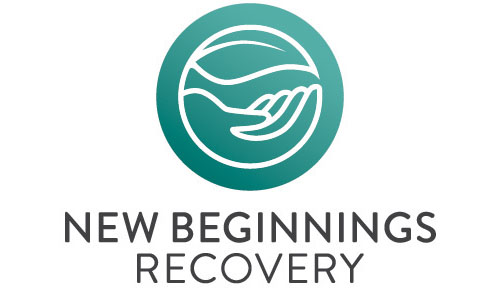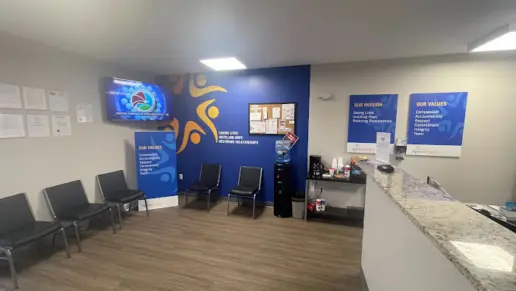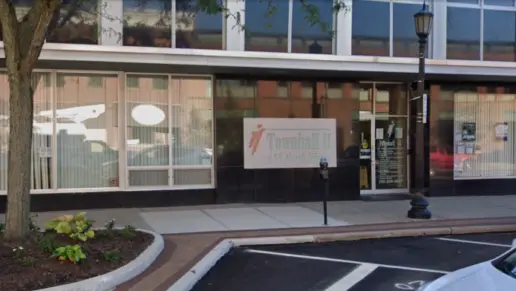About Wood County Educational Service Center
Wood County Educational Service Center - North Research Drive offers outpatient treatment for children and adolescents with a mental health diagnosis. The program includes life skills training, workshops, school education and more. Wood County Educational Service Center - North Research Drive is located at Bowling Green, Ohio.
The Wood County Alternative School is committed to providing relevant educational opportunities, behavioral interventions and service learning experiences for at risk students in a safe and supportive environment.
They believe all students are worthy of dignity and respect. They also believe in providing an opportunity for effective, positive change for students through community cooperation and parental involvement. They are compromised to provide the student with the opportunity to master the skills necessary to return to a traditional school setting.
The Youth Empowerment Project (YEP) is funded by grants through the Workforce Innovation and Opportunity Act (WIOA) and Temporary Assistance for Needy Families (TANF) programs. These grants are overseen by the Wood County Department of Job and Family Services who contract with the Wood County Educational Service Center to provide services. YEP provides services to Wood County youth age 14 to 24. This program is available at no cost to youth or families who qualify.
YEP serves youth at Wood County Educational Service Center by offering them the life skills needed to be successful. They assist youth with setting and achieving educational, employment, and career goals. A wide variety of services are available including credit recovery, individual training and counseling, employment and career workshops, and opportunities for real life employment experiences with local employers in the community.
Rehab Score
Other Forms of Payment
Self-pay involves paying for treatment out of your own pocket. You can use savings or credit, get a personal loan, or receive help from family and friends to fund your treatment. If you don't have insurance or your insurance plan doesn't cover a specific program, self-pay can help ensure you still get the care you need.
Financial aid can take many forms. Centers may have grants or scholarships available to clients who meet eligibility requirements. Programs that receive SAMHSA grants may have financial aid available for those who need treatment as well. Grants and scholarships can help you pai for treatment without having to repay.
Addiction Treatments
Levels of Care
Treatments
Mental health rehabs focus on helping individuals recover from mental illnesses like bipolar disorder, clinical depression, anxiety disorders, schizophrenia, and more. Mental health professionals at these facilities are trained to understand and treat mental health issues, both in individual and group settings.
Programs



Clinical Services
Cognitive Behavioral Therapy (CBT) is a therapy modality that focuses on the relationship between one's thoughts, feelings, and behaviors. It is used to establish and allow for healthy responses to thoughts and feelings (instead of unhealthy responses, like using drugs or alcohol). CBT has been proven effective for recovering addicts of all kinds, and is used to strengthen a patient's own self-awareness and ability to self-regulate. CBT allows individuals to monitor their own emotional state, become more adept at communicating with others, and manage stress without needing to engage in substance abuse.
Experiential therapy is a form of therapy in which clients are encouraged to surface and work through subconscious issues by engaging in real-time experiences. Experiential therapy departs from traditional talk therapy by involving the body, and having clients engage in activities, movements, and physical and emotional expression. This can involve role-play or using props (which can include other people). Experiential therapy can help people process trauma, memories, and emotion quickly, deeply, and in a lasting fashion, leading to substantial and impactful healing.
Research clearly demonstrates that recovery is far more successful and sustainable when loved ones like family members participate in rehab and substance abuse treatment. Genetic factors may be at play when it comes to drug and alcohol addiction, as well as mental health issues. Family dynamics often play a critical role in addiction triggers, and if properly educated, family members can be a strong source of support when it comes to rehabilitation.
Group therapy is any therapeutic work that happens in a group (not one-on-one). There are a number of different group therapy modalities, including support groups, experiential therapy, psycho-education, and more. Group therapy involves treatment as well as processing interaction between group members.
In individual therapy, a patient meets one-on-one with a trained psychologist or counselor. Therapy is a pivotal part of effective substance abuse treatment, as it often covers root causes of addiction, including challenges faced by the patient in their social, family, and work/school life.
Life skills trainings involve all the skills a person must have in order to function successfully in the world. These include time management, career guidance, money management, and effective communication. Truly successful addiction recovery is based on the ability to not only live substance-free, but to thrive. Life skills teaches the practical necessities of functioning in society, which sets clients up for success in life, and therefore sobriety.
Recreational therapy (aka therapeutic recreation) uses creative and fun activities to help with addiction recovery. Recreational therapists lead patients in entertaining and engaging activities like sports or games; art (drawing, painting, sculpture); drama, music, and dance; and/or community outings (field trips) to improve patients' physical, social, and emotional well-being.
Contact Information
1867 North Research Drive
Bowling Green, OH 43402


